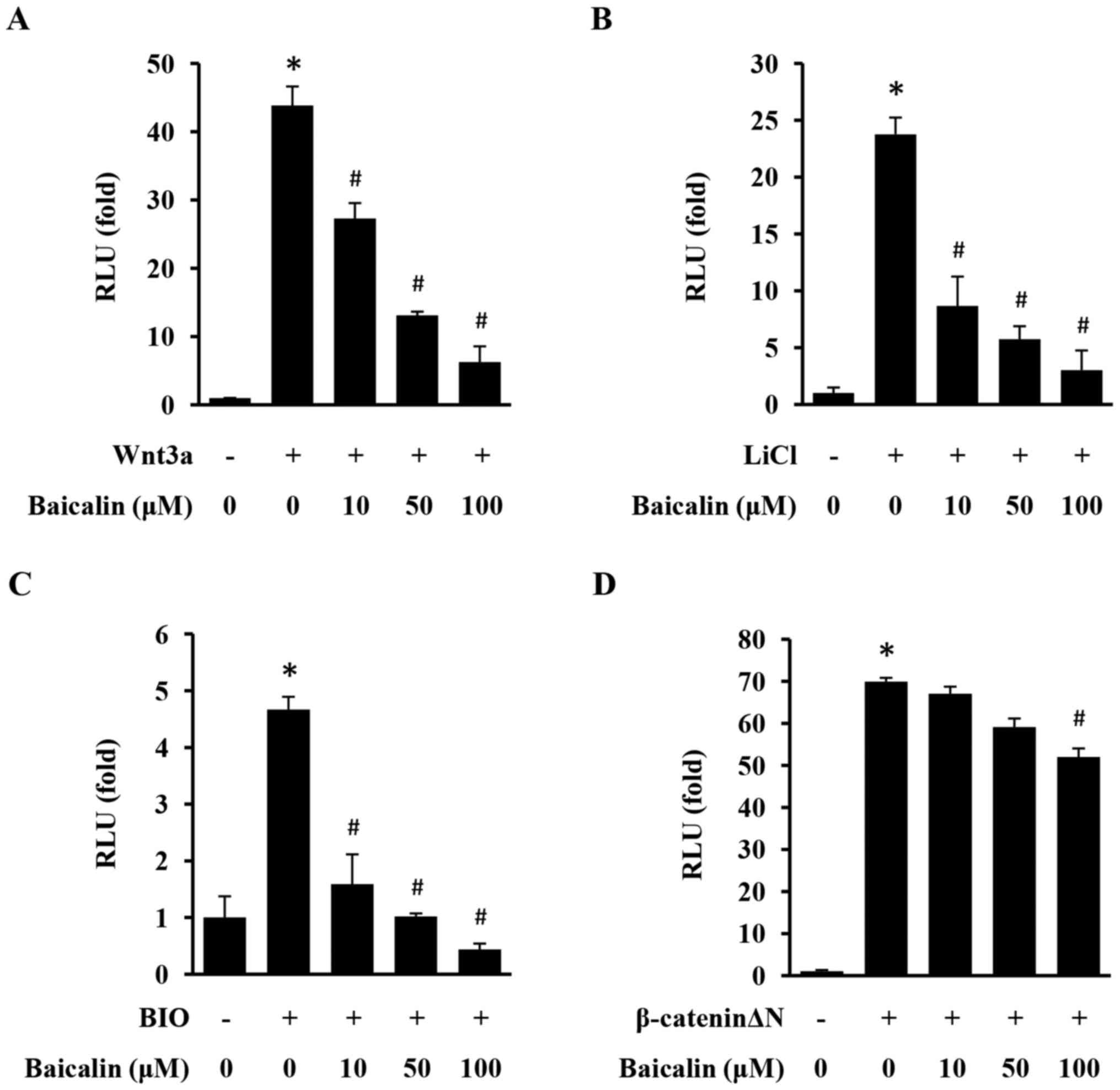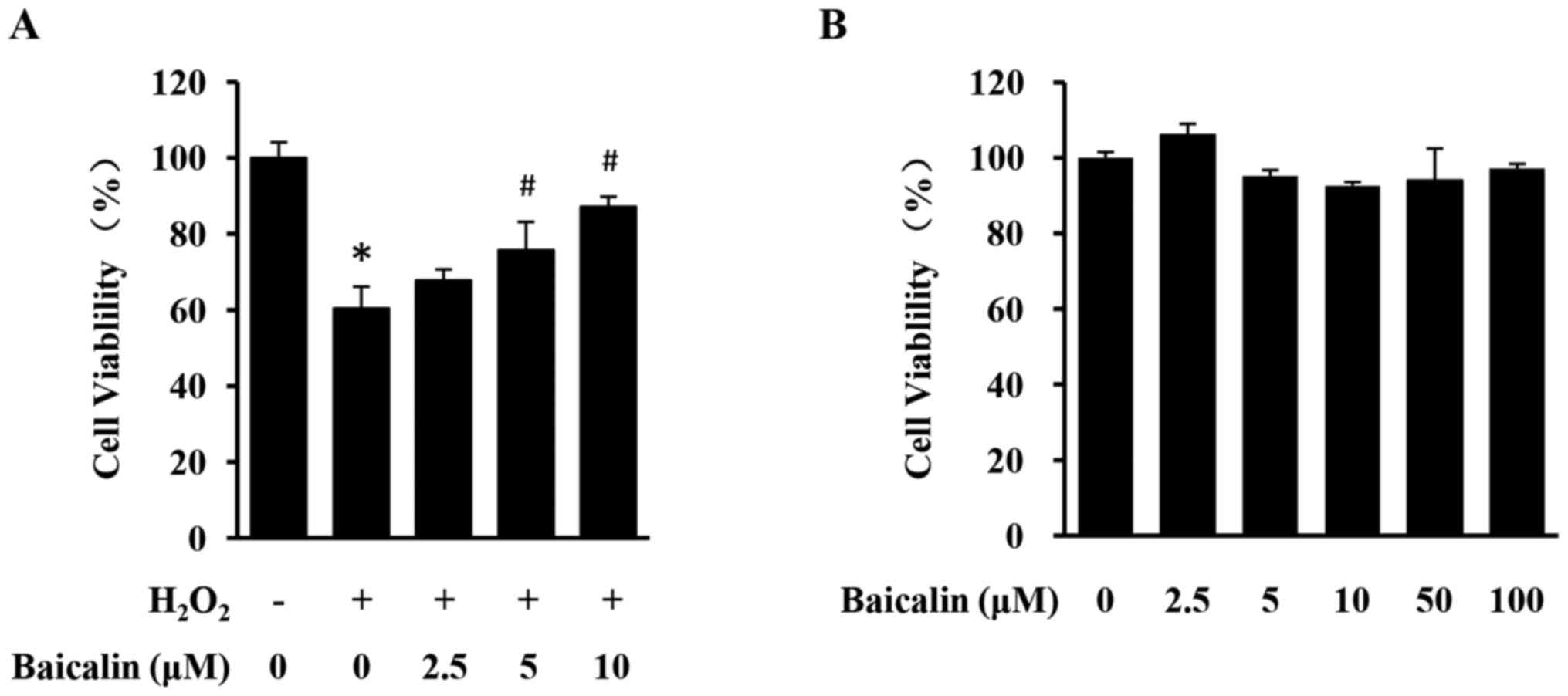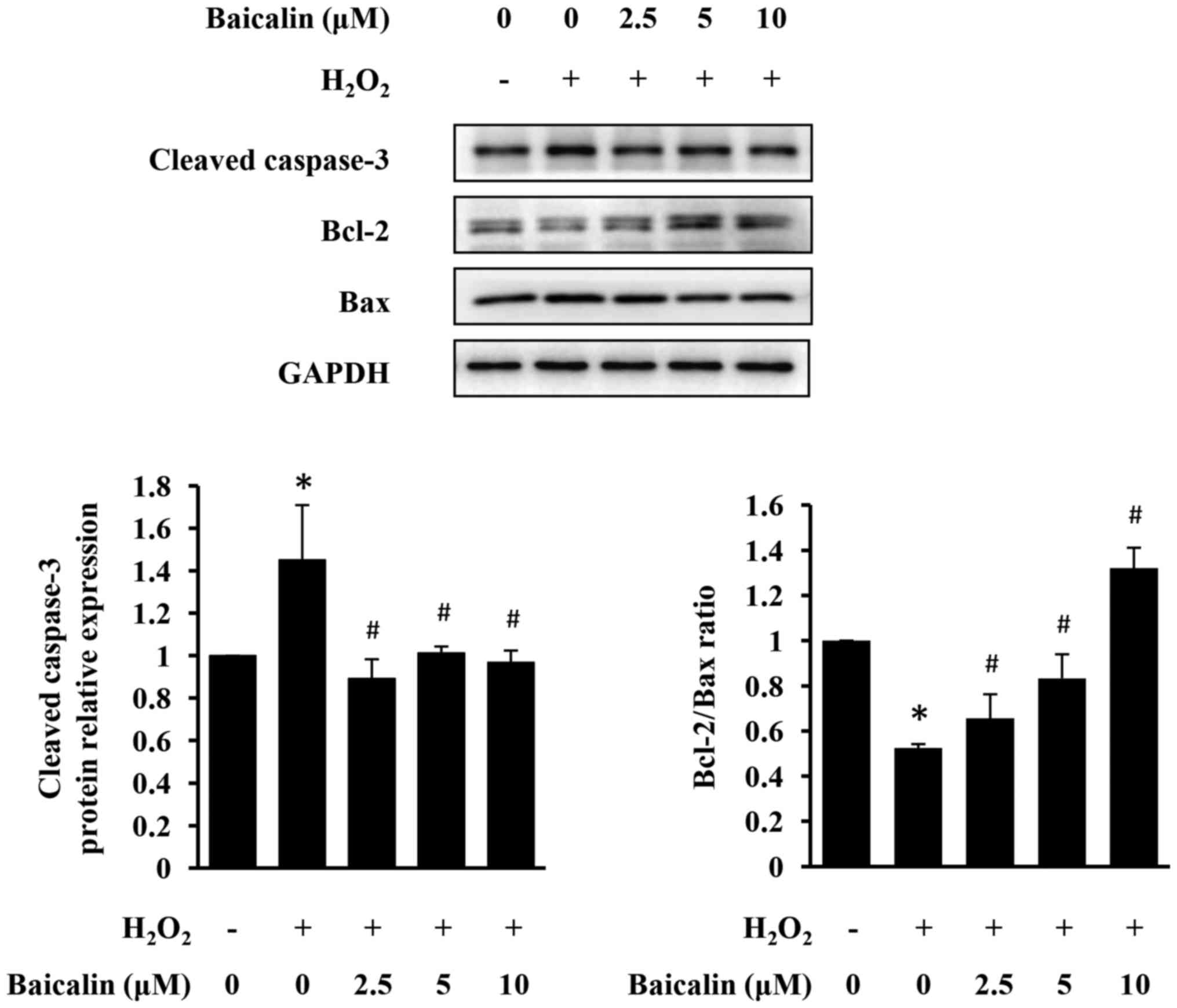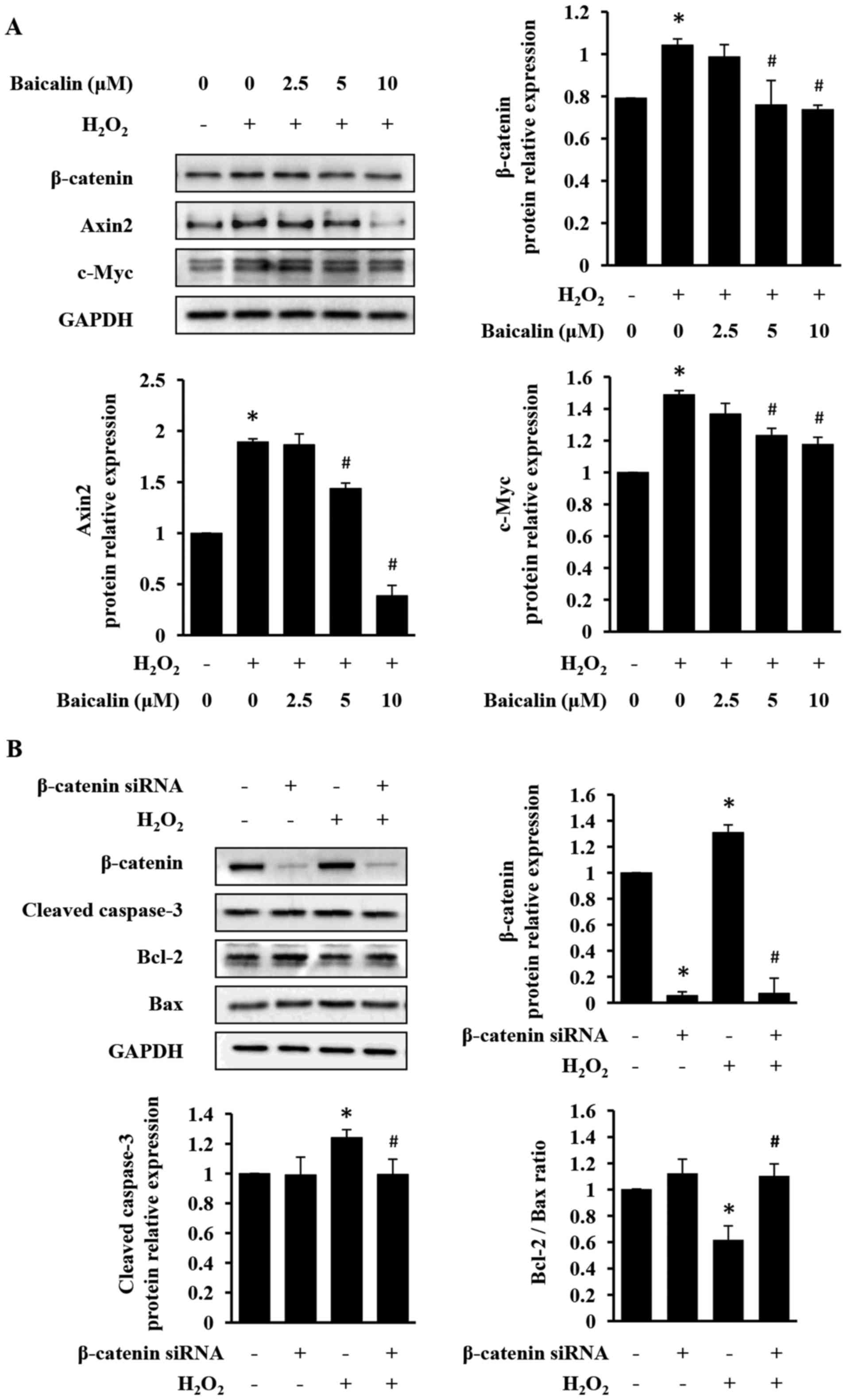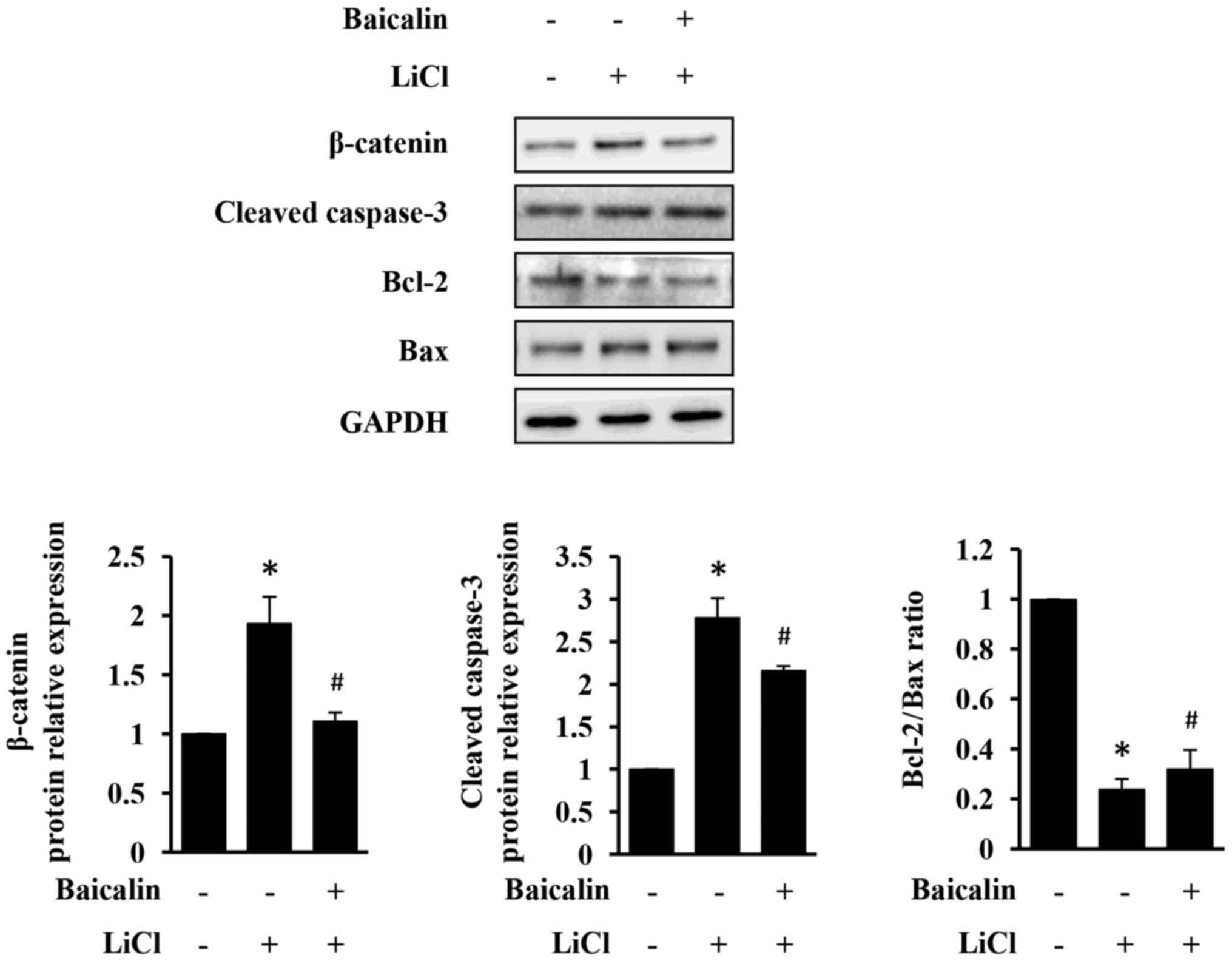|
1
|
Dohn TE and Waxman JS: Distinct phases of
Wnt/β-catenin signaling direct cardiomyocyte formation in
zebrafish. Dev Biol. 361:364–376. 2012. View Article : Google Scholar : PubMed/NCBI
|
|
2
|
Gessert S and Kühl M: The multiple phases
and faces of wnt signaling during cardiac differentiation and
development. Circ Res. 107:186–199. 2010. View Article : Google Scholar : PubMed/NCBI
|
|
3
|
Gibb N, Lavery DL and Hoppler S: Sfrp1
promotes cardiomyocyte differentiation in Xenopus via
negative-feedback regulation of Wnt signalling. Development.
140:1537–1549. 2013. View Article : Google Scholar : PubMed/NCBI
|
|
4
|
Yamashita JK, Takano M, Hiraoka-Kanie M,
Shimazu C, Peishi Y, Yanagi K, Nakano A, Inoue E, Kita F and
Nishikawa S: Prospective identification of cardiac progenitors by a
novel single cell-based cardiomyocyte induction. FASEB J.
19:1534–1536. 2005.PubMed/NCBI
|
|
5
|
Barandon L, Couffinhal T, Ezan J, Dufourcq
P, Costet P, Alzieu P, Leroux L, Moreau C, Dare D and Duplàa C:
Reduction of infarct size and prevention of cardiac rupture in
transgenic mice overexpressing FrzA. Circulation. 108:2282–2289.
2003. View Article : Google Scholar : PubMed/NCBI
|
|
6
|
Mirotsou M, Zhang Z, Deb A, Zhang L,
Gnecchi M, Noiseux N, Mu H, Pachori A and Dzau V: Secreted frizzled
related protein 2 (Sfrp2) is the key Akt-mesenchymal stem
cell-released paracrine factor mediating myocardial survival and
repair. Proc Natl Acad Sci USA. 104:pp. 1643–1648. 2007; View Article : Google Scholar : PubMed/NCBI
|
|
7
|
Zhang Z, Deb A, Zhang Z, Pachori A, He W,
Guo J, Pratt R and Dzau VJ: Secreted frizzled related protein 2
protects cells from apoptosis by blocking the effect of canonical
Wnt3a. J Mol Cell Cardiol. 46:370–377. 2009. View Article : Google Scholar : PubMed/NCBI
|
|
8
|
Zhu W, Shiojima I, Ito Y, Li Z, Ikeda H,
Yoshida M, Naito AT, Nishi J, Ueno H, Umezawa A, et al: IGFBP-4 is
an inhibitor of canonical Wnt signalling required for
cardiogenesis. Nature. 454:345–349. 2008. View Article : Google Scholar : PubMed/NCBI
|
|
9
|
Funato Y and Miki H: Redox regulation of
Wnt signalling via nucleoredoxin. Free Radic Res. 44:379–388. 2010.
View Article : Google Scholar : PubMed/NCBI
|
|
10
|
Kafka A, Bašić-Kinda S and Pećina-Šlaus N:
The cellular story of dishevelleds. Croat Med J. 55:459–467. 2014.
View Article : Google Scholar : PubMed/NCBI
|
|
11
|
MacDonald BT, Tamai K and He X:
Wnt/beta-catenin signaling: Components, mechanisms, and diseases.
Dev Cell. 17:9–26. 2009. View Article : Google Scholar : PubMed/NCBI
|
|
12
|
Kong F, Luan Y, Zhang ZH, Cheng GH, Qi TG
and Sun C: Baicalin protects the myocardium from
reperfusion-induced damage in isolated rat hearts via the
antioxidant and paracrine effect. Exp Ther Med. 7:254–259. 2014.
View Article : Google Scholar : PubMed/NCBI
|
|
13
|
Xu M, Chen X, Gu Y, Peng T, Yang D, Chang
RC, So KF, Liu K and Shen J: Baicalin can scavenge peroxynitrite
and ameliorate endogenous peroxynitrite-mediated neurotoxicity in
cerebral ischemia-reperfusion injury. J Ethnopharmacol.
150:116–124. 2013. View Article : Google Scholar : PubMed/NCBI
|
|
14
|
Liu X, Gu J, Fan Y, Shi H and Jiang M:
Baicalin attenuates acute myocardial infarction of rats via
mediating the mitogen-activated protein kinase pathway. Biol Pharm
Bull. 36:988–994. 2013. View Article : Google Scholar : PubMed/NCBI
|
|
15
|
Sun SJ, Wu XP, Song HL and Li GQ: Baicalin
ameliorates isoproterenol-induced acute myocardial infarction
through iNOS, inflammation, oxidative stress and P38MAPK pathway in
rat. Int J Clin Exp Med. 8:22063–22072. 2015.PubMed/NCBI
|
|
16
|
Zhang J, Liu S, Xu B, Li G, Li G, Huang A,
Wu B, Peng L, Song M, Xie Q, et al: Study of baicalin on
sympathoexcitation induced by myocardial ischemia via P2X3 receptor
in superior cervical ganglia. Auton Neurosci. 189:8–15. 2015.
View Article : Google Scholar : PubMed/NCBI
|
|
17
|
Shen M, Wang L, Yang G, Gao L, Wang B, Guo
X, Zeng C, Xu Y, Shen L, Cheng K, et al: Baicalin protects the
cardiomyocytes from ER stress-induced apoptosis: Inhibition of CHOP
through induction of endothelial nitric oxide synthase. PLoS One.
9:e883892014. View Article : Google Scholar : PubMed/NCBI
|
|
18
|
Berg K, Jynge P, Bjerve K, Skarra S, Basu
S and Wiseth R: Oxidative stress and inflammatory response during
and following coronary interventions for acute myocardial
infarction. Free Radic Res. 39:629–636. 2005. View Article : Google Scholar : PubMed/NCBI
|
|
19
|
Sun Y: Myocardial repair/remodelling
following infarction: Roles of local factors. Cardiovasc Res.
81:482–490. 2009. View Article : Google Scholar : PubMed/NCBI
|
|
20
|
Diestel A, Drescher C, Miera O, Berger F
and Schmitt KR: Hypothermia protects H9c2 cardiomyocytes from H2O2
induced apoptosis. Cryobiology. 62:53–61. 2011. View Article : Google Scholar : PubMed/NCBI
|
|
21
|
Eguchi M, Liu Y, Shin EJ and Sweeney G:
Leptin protects H9c2 rat cardiomyocytes from H2O2-induced
apoptosis. FEBS J. 275:3136–3144. 2008. View Article : Google Scholar : PubMed/NCBI
|
|
22
|
Law CH, Li JM, Chou HC, Chen YH and Chan
HL: Hyaluronic acid-dependent protection in H9C2 cardiomyocytes: A
cell model of heart ischemia-reperfusion injury and treatment.
Toxicology. 303:54–71. 2013. View Article : Google Scholar : PubMed/NCBI
|
|
23
|
Park ES, Kang JC, Jang YC, Park JS, Jang
SY, Kim DE, Kim B and Shin HS: Cardioprotective effects of
rhamnetin in H9c2 cardiomyoblast cells under H2 O2 -induced
apoptosis. J Ethnopharmacol. 153:552–560. 2014. View Article : Google Scholar : PubMed/NCBI
|
|
24
|
Chen J, Yan H, Ren DN, Yin Y, Li Z, He Q,
Wo D, Ho MS, Chen Y, Liu Z, et al: LRP6 dimerization through its
LDLR domain is required for robust canonical Wnt pathway
activation. Cell Signal. 26:1068–1074. 2014. View Article : Google Scholar : PubMed/NCBI
|
|
25
|
Mao B, Wu W, Davidson G, Marhold J, Li M,
Mechler BM, Delius H, Hoppe D, Stannek P, Walter C, et al: Kremen
proteins are Dickkopf receptors that regulate Wnt/beta-catenin
signalling. Nature. 417:664–667. 2002. View Article : Google Scholar : PubMed/NCBI
|
|
26
|
Mao B, Wu W, Li Y, Hoppe D, Stannek P,
Glinka A and Niehrs C: LDL-receptor-related protein 6 is a receptor
for Dickkopf proteins. Nature. 411:321–325. 2001. View Article : Google Scholar : PubMed/NCBI
|
|
27
|
Tamai K, Semenov M, Kato Y, Spokony R, Liu
C, Katsuyama Y, Hess F, Saint-Jeannet JP and He X:
LDL-receptor-related proteins in Wnt signal transduction. Nature.
407:530–535. 2000. View
Article : Google Scholar : PubMed/NCBI
|
|
28
|
Veeman MT, Slusarski DC, Kaykas A, Louie
SH and Moon RT: Zebrafish prickle, a modulator of noncanonical
Wnt/Fz signaling, regulates gastrulation movements. Curr Biol.
13:680–685. 2003. View Article : Google Scholar : PubMed/NCBI
|
|
29
|
Ren DN, Chen J, Li Z, Yan H, Yin Y, Wo D,
Zhang J, Ao L, Chen B, Ito TK, et al: LRP5/6 directly bind to
Frizzled and prevent Frizzled-regulated tumour metastasis. Nat
Commun. 6:69062015. View Article : Google Scholar : PubMed/NCBI
|
|
30
|
Caraci F, Gili E, Calafiore M, Failla M,
La Rosa C, Crimi N, Sortino MA, Nicoletti F, Copani A and Vancheri
C: TGF-beta1 targets the GSK-3beta/beta-catenin pathway via ERK
activation in the transition of human lung fibroblasts into
myofibroblasts. Pharmacol Res. 57:274–282. 2008. View Article : Google Scholar : PubMed/NCBI
|
|
31
|
Wang Y, Lam JB, Lam KS, Liu J, Lam MC, Hoo
RL, Wu D, Cooper GJ and Xu A: Adiponectin modulates the glycogen
synthase kinase-3beta/beta-catenin signaling pathway and attenuates
mammary tumorigenesis of MDA-MB-231 cells in nude mice. Cancer Res.
66:11462–11470. 2006. View Article : Google Scholar : PubMed/NCBI
|
|
32
|
Zhang Y, Qiu WJ, Liu DX, Neo SY, He X and
Lin SC: Differential molecular assemblies underlie the dual
function of Axin in modulating the WNT and JNK pathways. J Biol
Chem. 276:32152–32159. 2001. View Article : Google Scholar : PubMed/NCBI
|
|
33
|
Funato Y, Michiue T, Asashima M and Miki
H: The thioredoxin-related redox-regulating protein nucleoredoxin
inhibits Wnt-beta-catenin signalling through dishevelled. Nat Cell
Biol. 8:501–508. 2006. View
Article : Google Scholar : PubMed/NCBI
|
|
34
|
Wo D, Peng J, Ren DN, Qiu L, Chen J, Zhu
Y, Yan Y, Yan H, Wu J, Ma E, et al: Opposing roles of Wnt
inhibitors IGFBP-4 and Dkk1 in cardiac ischemia by differential
targeting of LRP5/6 and β-catenin. Circulation. 134:1991–2007.
2016. View Article : Google Scholar : PubMed/NCBI
|















